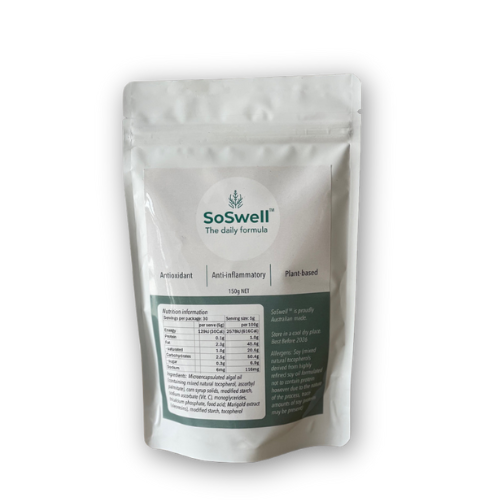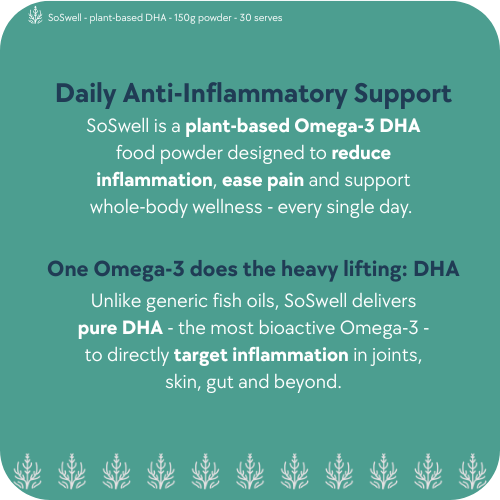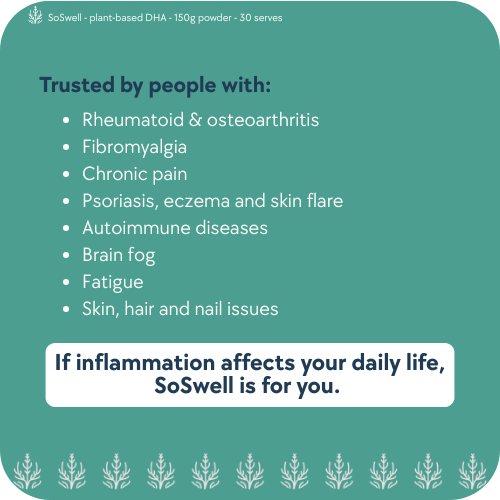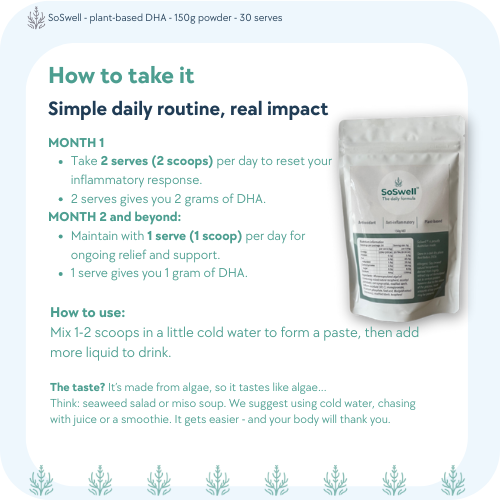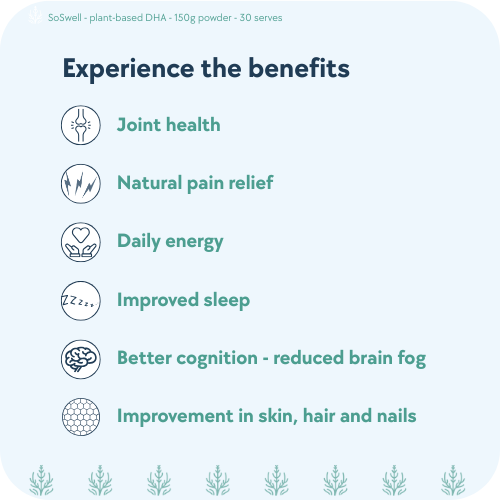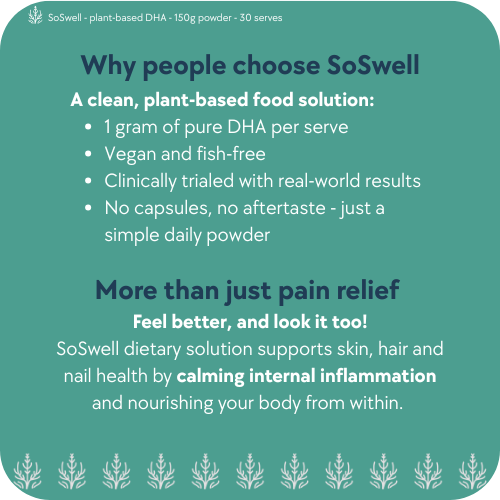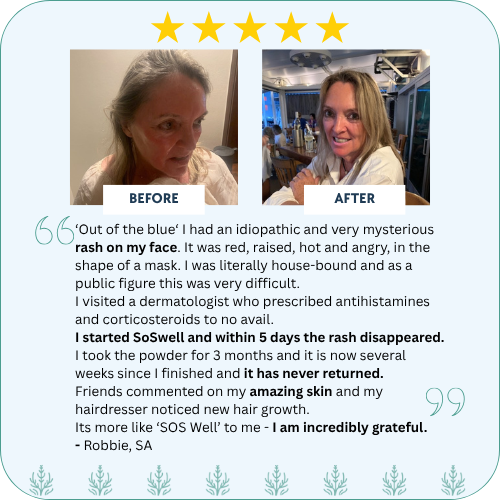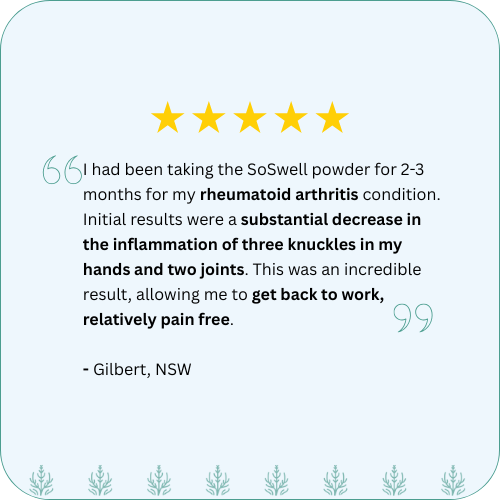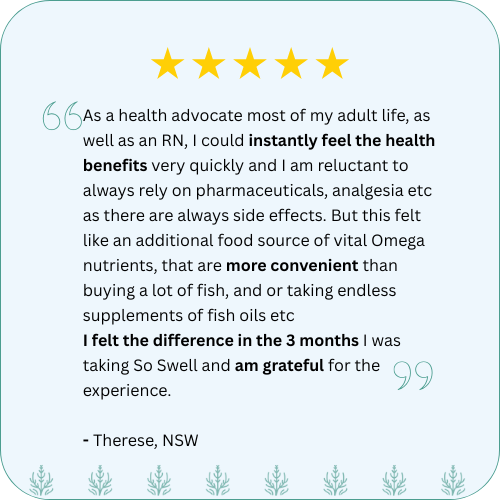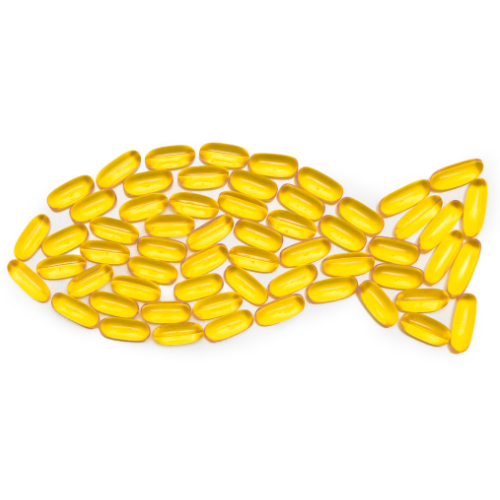
Why Fish Oil Isn't the Gold Standard - And What Makes DHA From Algae Better
Share
Fish Oil Has Had Its Moment - But We've Moved On
For decades, fish oil has been marketed as a natural omega-3 fix for everything from health to inflammation. But most people don't realise just how limited fish oil really is - both in effectiveness and usability.
The truth? Fish oil isn't the gold standard anymore - especially when it comes to real, therapeutic inflammation suppression.
What's Wrong With Fish Oil?
Most over-the-counter fish oil capsules fall short for a few key reasons:
- Too low in DHA - most contain small amounts of DHA, far below the recommended daily dose for a therapeutic benefit.
- Poor bioavailability - many fish oil capsules are in the ethyl ester form, which the body absorbs less efficiently than the triglyceride form found in DHA from algae. (Want to know more about this? Read more below*)
- Prone to oxidation - fish oil can degrade quickly, especially in soft-gel capsules exposed to air and heat.
- Unwanted extras - fish burps, gut irritation, and potential contaminants like mercury and microplastics
And if you prefer a plant-based diet, fish oil simply doesn't fit your dietary needs.
The Ecological Toll of Fish Oil
It's estimated that a single bottle of fish oil capsules can require up to 50 anchovies or sardines to produce. Multiply that across global demand, and you get a massive strain on marine ecosystems.
These fish are often caught using industrial-scale net trawling, a practice that:
- Depletes forage fish populations critical to the food chain
- Causes bycatch of non-targeted species
- Disrupts ocean ecosystems and marine biodiversity
DHA From Algae: A Cleaner, More Effective Option
Algae is the original source of DHA - fish only have DHA because they eat algae. So why not skip the middleman?
Algae-derived DHA offers several advantages:
- More pure and concentrated - no oxidation or heavy metals; also higher levels of DHA per serve
- More sustainable - cultivated in controlled environments, not trawled from oceans
- Clinically validated - shown superior anti-inflammatory and cognitive benefits versus fish oil since it contains higher levels of DHA
- More bioavailable - especially in triglyceride or phospholipid forms*
And importantly, algae-sourced DHA is completely plant-based - ideal for vegans, vegetarians and anyone avoiding fish.
Why DHA Matters More Than EPA
Fish oil usually contains both DHA and EPA - but for long-term inflammation support, DHA is the key player.
- DHA is better at integrating into cell membranes, supporting nervous system health and modulating chronic inflammation.
- It's more bioavailable than EPA and has longer-lasting anti-inflammatory effects.
- Clinical evidence suggests 2 grams per day of DHA is where measurable outcomes begin - a level rarely delivered by fish oil capsules.
SoSwell: The Better DHA, Delivered Right
SoSwell is a daily plant-based formula that delivers:
- 1 gram of algae-derived DHA per serve (1 scoop) - clean, concentrated and clinically dosed
- Zeaxanthin - an antioxidant that helps protect cells and fight oxidative stress
- No fish, no fillers, no digestive discomfort
It is chronic inflammation suppression - evolved.
Final Thought: Don't Settle For Fishy Fixes
If you've tried fish oil and didn't feel a difference, it's not you - it's the dose, the form and the delivery.
And if you've taken a LOT of fish oil and noticed some benefit, but want a better way to get the right amount of daily DHA without the downsides, you're in the right place.
Try SoSwell today and experience what high-strength, plant-based DHA can do for your body.
*BONUS CONTENT - What Does "Bioavailability" Really Mean?
When it comes to omega-3s, bioavailability is just a fancy word for how well your body can absorb and use what you take.
Here's the catch: not all fish oils are created equal. Many cheap or mass-market brands use a processed version of omega-3 called the ethyl ester form - which your body has to work harder to break down and absorb.
That means:
- You're getting less usable DHA per capsule
- You may need to take more capsules just to see a benefit (Hello, rising costs!)
- You might not feel the full effect at all
So if you've tried fish oil, and it didn't seem to help - it might not be you. It might be the form.
SoSwell uses algae-based DHA in its natural, body-ready form - so you get clean, concentrated support your body can actually use, without the side effects and downsides.

